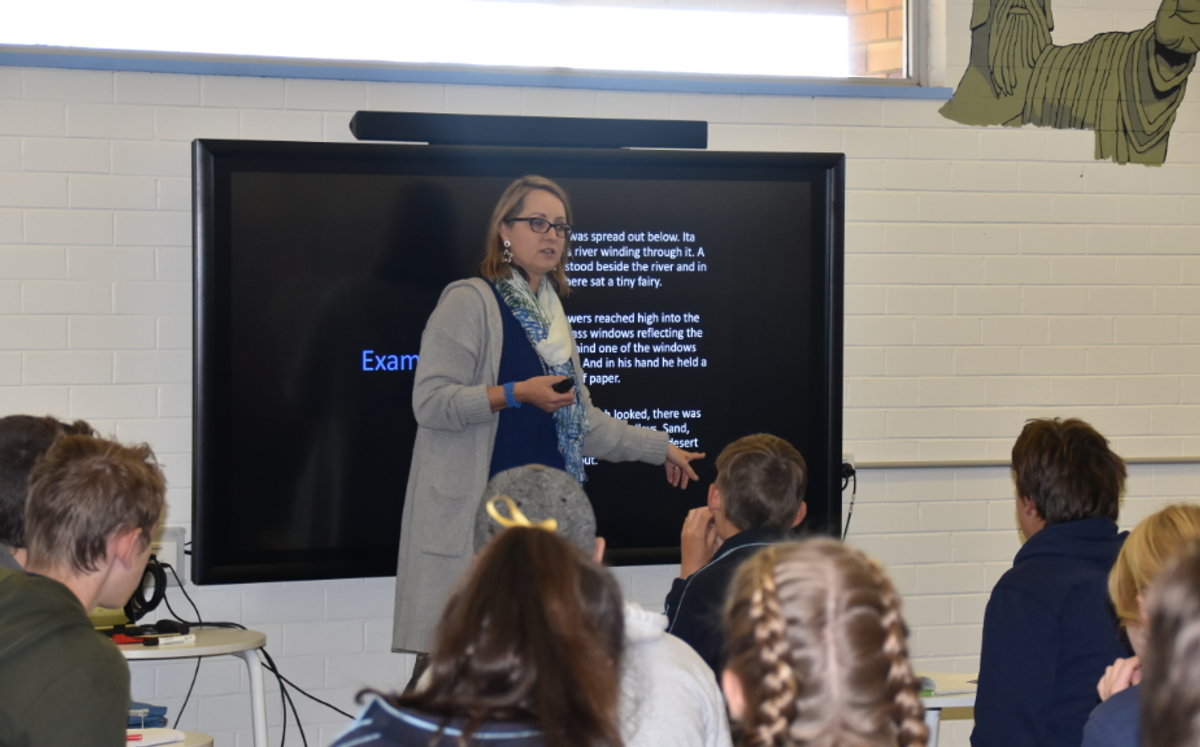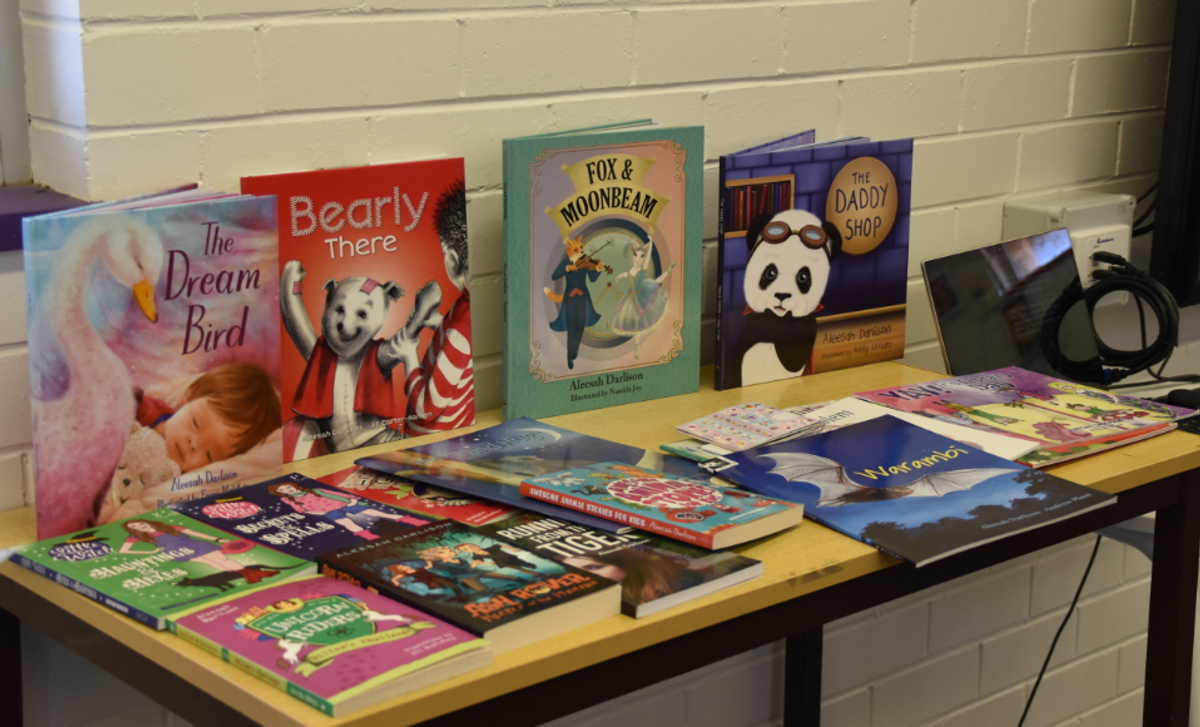Library News

Study Skills.
STUDY SKILLS TIP FOR MAY: BARRIERS TO DEVELOPING A GOOD MEMORY
Many students say ‘I don’t have a good memory’ but there are many barriers to developing a good memory that are able to be overcome. Here are the top 3:
1. NEGATIVE MINDSET / ATTITUDE
Henry Ford once famously said, “whether you believe you can, or you can't, you are right”. This refers to your mindset or mental attitude, and the concept that your mind is powerful enough to enable your thoughts to create your reality. If you have a negative attitude to your memory, it will likely reduce your chance of developing and maintaining a good memory. There are some simple steps you can take to start making changes to negative thoughts. Be aware that negative thoughts are just a habit, and habits can be changed with a little effort. Awareness is the key to changing a habit, as you need to consciously be aware of the current habit before you can change it – so start catching yourself in the act of making negative statements. Affirm your intention to improve the way you think. Then correct the negative statement you just made, and make it into a more positive one.
2. ABSENTMINDEDNESS / NOT PAYING ATTENTION
The first stage of the memory process is encoding the information that is to be remembered – thus the brain uses the senses and emotions to process the information and form a memory. Here are some ways in which you can be less absentminded:
- Setting an intention to become more attentive.
- Sitting up front where there are less things to distract you, especially if you have difficulty paying attention in class.
-Taking notes in class to ensure you listen.
3. STRESS / ANXIETY
Stress will increase the likelihood of being distracted, resulting in low concentration meaning that information may not be encoded accurately – and thus cannot be later retrieved. Stress may also result in mental blanks. For example, if you’re stressed before an exam, you may not be able to think clearly and access and retrieve the information you need. The best thing to do is to take ten deep breaths and calm down to allow your mind to focus.
Learn more at the Brain and Memory unit of www.studyskillshandbook.com.au.
Our school’s subscription details are -
Accessing Oliver at Home.
Below is a guide to accessing Oliver at home.
Author - Aleesah Darlison.
On Monday 17 June, Uralla Central School had a visit from the acclaimed and prolifically published author, Aleesah Darlison. Aleesah ran 3 separate sessions for our students. The first was a career talk for Years 9 and 10 regarding how she became an author and what is involved. She shared with the students the immense commitment that was required and the extreme level of organisation that allowed Aleesah to earn a living doing what she loves (even though her family and friends thought that it was impossible).
The second session was a sizzling starters workshop with Year 7 and 8. Although this was a turbulent session, there were numerous students who demonstrated their creative writings skills. Most students enjoyed the sessions and were able to hone and develop their writing skills, hopefully to better demonstrate their capabilities. We have a few aspiring authors at Uralla Central School and I’m sure that they took full advantage of this opportunity.
The third sessions was focussed particularly on writing and creating picture books. This is a field that is much more in depth than it first appears, with many more calculations and decisions regarding story, language and word count. This sessions was open to all students from Year 5 to Academy. All up there were eight students who attended the session. Each student wrote their own picture book with the assistance of Aleesah. Unfortunately, there was not enough time to illustrate the books, but we hope that each of the students took the time to do so. These opportunities do not come around everyday and the books that were shared in the group were absolutely wonderful.
On the whole, the day was a roaring success. Students enjoyed the sessions and conducted themselves in the respectful and receptive manner. Hopefully we will be able to provide similar sessions in the future.
The Ohio State University - Reading to Children
Young children whose parents read them five books a day enter Kindergarten having heard about 1.4 million more words than kids who were never read to, a new study found.
This “million word gap” could be one key in explaining differences in vocabulary and reading development, said Jessica Logan, lead author of the study and assistant professor of educational studies at The Ohio State University.
Even kids who are read only one book a day will hear about 290,000 more words by age 5 than those who don’t regularly read books with a parent or caregiver.
“Kids who hear more vocabulary words are going to be better prepared to see those words in print when they enter school,” said Logan, a member of Ohio State’s Crane Center for Early Childhood Research and Policy.
“They are likely to pick up reading skills more quickly and easily.”
The study appears online in the Journal of Developmental and Behavioral Pediatrics and will be published in a future print edition.
Logan said the idea for this research came from one of her earlier studies, which found that about one-fourth of children in a national sample were never read to and another fourth were seldom read to (once or twice weekly).
“The fact that we had so many parents who said they never or seldom read to their kids was pretty shocking to us. We wanted to figure out what that might mean for their kids,” Logan said.
The researchers collaborated with the Columbus Metropolitan Library, which identified the 100 most circulated books for both board books (targeting infants and toddlers) and picture books (targeting preschoolers).
Logan and her colleagues randomly selected 30 books from both lists and counted how many words were in each book. They found that board books contained an average of 140 words, while picture books contained an average of 228 words.
With that information, the researchers calculated how many words a child would hear from birth through his or her 5th birthday at different levels of reading. They assumed that kids would be read board books through their 3rd birthday and picture books the next two years, and that every reading session (except for one category) would include one book.
They also assumed that parents who reported never reading to their kids actually read one book to their children every other month.
Based on these calculations, here’s how many words kids would have heard by the time they were 5 years old: Never read to, 4,662 words; 1-2 times per week, 63,570 words; 3-5 times per week, 169,520 words; daily, 296,660 words; and five books a day, 1,483,300 words.
“The word gap of more than 1 million words between children raised in a literacy-rich environment and those who were never read to is striking,” Logan said.
The word gap examined in this research isn’t the only type kids may face.
A controversial 1992 study suggested that children growing up in poverty hear about 30 million fewer words in conversation by age 3 than those from more privileged backgrounds. Other studies since then suggest this 30 million word gap may be much smaller or even non-existent, Logan said.
The vocabulary word gap in this study is different from the conversational word gap and may have different implications for children, she said.
“This isn’t about everyday communication. The words kids hear in books are going to be much more complex, difficult words than they hear just talking to their parents and others in the home,” she said.
For instance, a children’s book may be about penguins in Antarctica – introducing words and concepts that are unlikely to come up in everyday conversation.
“The words kids hear from books may have special importance in learning to read,” she said.
Logan said the million word gap found in this study is likely to be conservative. Parents will often talk about the book they’re reading with their children or add elements if they have read the story many times.
This “extra-textual” talk will reinforce new vocabulary words that kids are hearing and may introduce even more words.
The results of this study highlight the importance of reading to children.
“Exposure to vocabulary is good for all kids. Parents can get access to books that are appropriate for their children at the local library,” Logan said.
Logan’s co-authors on the study were Laura Justice, professor of educational studies and director of the Crane Center at Ohio State; Leydi Johana Chaparro-Moreno, graduate student in educational studies at Ohio State; and Melike Yumuş of Başkent University in Turkey.


